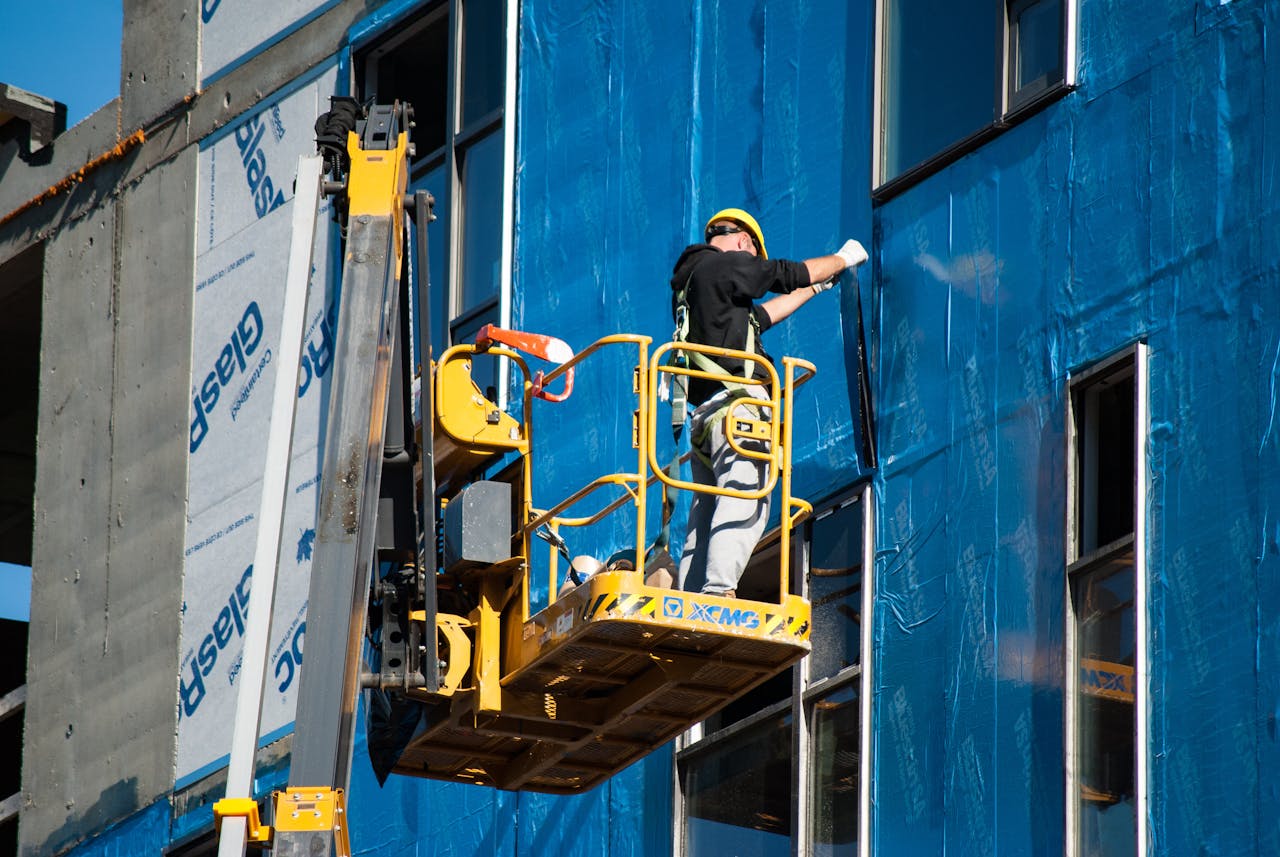What is a Building Envelope? and why is it important?
In the world of construction and building science, the term “building envelope” comes up frequently, but not everyone fully understands what it entails. If you’re a property owner, developer, or even a tenant, understanding the building envelope is key to maintaining and improving your property. So, what exactly is a building envelope, and why is it so important? In this blog post, we’ll break down everything you need to know about it.
What is a Building Envelope?
The building envelope refers to the physical barrier between the interior of a building and the exterior environment. It includes all the elements of the structure that protect the interior from the weather and external conditions. In simpler terms, it is the shell of the building—the roof, walls, windows, doors, and foundation—that keeps the inside safe from external elements like rain, wind, temperature changes, and humidity.
Key Components of a Building Envelope
A building envelope typically consists of three main components:
-
Roof: Acts as the top shield, preventing rain, snow, and other weather elements from entering the building.
-
Walls and Cladding: These form the vertical barrier between the interior and the outside world. Walls can be made from a variety of materials, including brick, wood, and concrete. The cladding is the outer layer that provides both protection and aesthetics.
-
Windows and Doors: While providing ventilation, light, and access, windows and doors are also designed to keep unwanted weather conditions outside. Proper sealing and insulation are essential to maintaining energy efficiency.
-
Foundation: The base of the building that provides structural support while preventing water and moisture from seeping into the building from the ground.
The Functions of a Building Envelope
The building envelope serves several critical purposes, which include:
-
Thermal Regulation: It helps in maintaining a comfortable indoor temperature by minimizing heat loss during colder months and reducing heat gain in the summer. Proper insulation, airtightness, and quality materials contribute to the building’s energy efficiency.
-
Moisture Control: A well-designed envelope protects the building from water damage. Waterproof membranes, flashing, and proper drainage systems ensure that moisture does not penetrate the structure, preventing mold, rot, and structural issues.
-
Air Control: The envelope acts as a barrier to air leakage, helping maintain indoor air quality and improving the overall efficiency of heating, ventilation, and air conditioning (HVAC) systems.
-
Structural Support: While not often thought of in terms of “envelopes,” walls, roofs, and foundations provide essential structural support to the building. This support allows the building to stand and resist external forces like wind or seismic activity.
Why is the Building Envelope Important?
The building envelope is vital for several reasons, making it one of the most important aspects of any construction or renovation project:
-
Energy Efficiency: A poorly designed or failing building envelope can lead to significant energy loss, forcing heating or cooling systems to work harder. This not only raises utility costs but also impacts environmental sustainability. A well-sealed and insulated building reduces energy consumption, improving the overall efficiency of the structure.
-
Moisture Protection: Moisture intrusion can lead to structural damage, mold growth, and health hazards. A high-performing envelope prevents water from seeping in, preserving the integrity and lifespan of the building.
-
Comfort: By maintaining stable indoor temperatures, controlling airflow, and preventing drafts, a good building envelope contributes to a more comfortable living or working environment.
-
Durability: The quality of the building envelope significantly influences the lifespan of a structure. Proper design, materials, and maintenance of the envelope ensure the building remains sound for many years to come.
Common Building Envelope Issues
Over time, building envelopes can deteriorate, leading to a host of issues. Here are some common problems associated with poorly performing envelopes:
-
Water Leaks: Cracked cladding, failed waterproof membranes, or inadequate drainage can lead to water infiltration, causing serious damage.
-
Energy Loss: Gaps in insulation, poor-quality windows, or improper sealing can result in energy inefficiency, leading to higher energy costs.
-
Air Leaks: Leaks in windows, doors, or joints can allow unwanted air exchange, making it harder to maintain a comfortable indoor climate.
-
Condensation and Mold: When warm indoor air meets cold surfaces due to insufficient insulation or moisture control, condensation can occur, promoting mold growth.
Building Envelope Maintenance and Upgrades
To ensure that your building envelope continues to perform well, regular maintenance and timely upgrades are essential. Here’s what you can do:
-
Inspect Seals and Joints: Regularly check windows, doors, and joints for gaps or cracks where air and moisture might enter.
-
Upgrade Insulation: If your building is older, it may benefit from additional or improved insulation to boost energy efficiency.
-
Waterproofing and Recladding: Consider waterproofing upgrades or recladding your building if the exterior shows signs of wear or damage.
-
Window and Door Replacement: Older windows and doors may not provide adequate insulation or protection. Replacing them with modern, energy-efficient options can significantly improve the envelope’s performance.
Final Thoughts
The building envelope plays a critical role in the performance, energy efficiency, and longevity of any structure. By understanding its components, functions, and the importance of proper maintenance, you can ensure that your building remains comfortable, durable, and cost-effective over time. Whether you’re constructing a new building, renovating an existing one, or simply maintaining your property, giving attention to the building envelope is essential for long-term success.
At I3 Contracting, we specialize in envelope construction and building science. Our team of experts can help you assess, repair, or upgrade your building’s envelope, ensuring it meets the highest standards of durability and efficiency.

